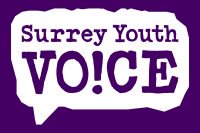
As ATLAS you are getting involved in more and more projects, consultations, conferences, and participation work, it can sometimes be difficult to keep track of all the amazing things you do! Here we will publish a monthly summary blog on everything ATLAS has been involved in in the past month.
Finalising Surrey's Co-production Charter
The Surrey Additional Needs and Disabilities Partnership is seeking to increase co-production in Surrey. They have been holding sessions to co-produce a new co-production charter in collaboration with school staff, parents, and families, as well as ATLAS.
Daniel Callaghan, Co-Production & Engagement Manager in Additional Needs and Disabilities Transformation has visited ATLAS in February 2023 to have your input in defining what co-production means and how Surrey should conduct co-production work. Dan came back again on the 15 of March to show you how co-production and its key principles were defined based on the feedback from you and other Surrey residents.
After having been shown two possible definitions of co-production, you've found the below to be most accurate:
"Co-production is a collaborative process, which empowers individuals to collectively and actively shape the support services that they need."
You said:
- "I like that it uses the word 'empower' because it brings me positivity".
- "I like it because I think it uses a lot of the words that we came up with and it explains co-production in a bit more depth. I do understand it is a bit wordy, but I feel like as an older young person I like this one".
You also agreed with the 5 principles of co-production that had been created based on your feedback:
- Arrangements are made to ensure everyone can take part (inclusivity/accessibility)
- Views are valued, respected, and acted on; differences are respected; and skills are recognised in an equal way (inclusivity/
- Everyone communicates respectfully and in a timely fashion (communication
- Everyone works together to achieve the best outcomes for children and young people (ambition/collaboration)
- An ongoing feedback loop provides transparency and accountability
honesty/openness/communication/accountability
The next step for Surrey is to now sign off and publish this first version of the co-production charter, and to roll out training on co-production for professionals working with young people and families in Surrey.
Education Health Care Plans (EHCP) Information and the role of a caseworker
This month we've worked on what information ATLAS would like to see on the local offer website about EHCP's, what would be helpful from a young person perspective.
You have defined some specific actions you'd like to see on the Local Offer which will empower young people with more knowledge and information around their EHCP processes and rights.
- Add on the local offer more information on what EHCP's are, and what the process is to have an EHCP.
- Add to the local offer that EHCP's are a legal document and what people's rights are on the local offer website.
- Add what to expect from a case officer to the local offer website.
- Create a young person friendly version of the Ordinarily Available Provision Guidance to be added to the EHCP young person webpage for the Local Offer.
- You raised an action card around case workers: "As young people with additional needs and disabilities, we would like to be informed if our caseworker changes, so that we don't spend time with trying to chase someone who doesn't work there anymore. 'At every annual review I have a new case worker and I am never informed about this in advance. I was chasing my case worker up for my apprenticeship only to find out that it had gotten changed again.'
- You want to create a fabulous profile of an Additional Needs and Disabilities (AN&D) case worker to share with the professionals.
ATLAS Meeting with the Additional Needs and Disabilities (AN&D) Partnership
This month we also held our second pre-meet between ATLAS and members of the Additional Needs and Disabilities (AN&D) Partnership, discussing two action cards related to reasonable adjustment.
The first action card one was how you would like professionals to ensure that board meetings are accessible and a safe space for young people to share their views.
Your guidance on this had been shared with the AN&D Partnership Board before the meeting. In the pre-meet, members of the partnership recognised that agenda items are not always children and young people friendly and can be dull if not of interest, and that there is a need to be flexible and have more variety to meet the need of all partners, including children and young people.
They were in favour of working towards moving away from the pre-meet process and eventually fully involving you in board meetings! Partnership members also looked at the specific suggestions in your guidance around reasonable adjustments to put in place in meetings with young people, and the membership promised to collectively implement accessibility in practice and meetings.
The second action card we discussed was for professionals working in education to understand the importance and legal obligations of reasonable adjustments. In the pre-meet we discussed the Ordinarily Available Provision (OAP) Guidance, which you thought was a great document and guidance for schools, however you expressed you feel like schools are taking a long time to fully implement it.
"It feels like we need to be screaming through this document for our voices to be heard."
Actions we agreed in the meeting to follow through:
- ATLAS to create video reels about adjustments that schools can make that are often small adjustments and free. This will then be incorporated with the Ordinarily Available Provision training video.
- Members of the partnership who work with schools are to share good practice, to embed change of culture and inspire education settings.
- We discussed the possibility of ATLAS presenting at the Surrey Governors Conference later in the year.
The next pre-meet with the AN&D Partnership is on the 17 May, in which we'll be discussing our mental health related action cards.
Ordinarily Available Provision Guidance
The term 'ordinarily available provision' refers to the support that mainstream schools or settings are expected to provide for a child or young person without an EHCP or diagnosis.
Examples of an ordinary provision includes:
- Do not pressurise the child to speak, it may make the situation worse (if they are experiencing anxiety).
- Be an interesting speaker for example show enthusiasm, use body language to emphasise points (if they have attention and listening difficulties).
- Support to manage self-esteem, celebrations of strengths, reinforcement of success (if they have generalized learning difficulties).
- The adult delivering the intervention is experienced and has appropriate training in relation to the specific intervention (if they have Specific learning difficulties).
Surrey has created a new 'Ordinarily Available Provision (OAP) Guidance' for schools, in which there are a range of strategies suggested for professionals to achieve the above. Your feedback on the guidance was that you found it to be thorough and an essential document for schools to be using.
You had some suggestions and questions that are to be shared with the Additional Needs and Disabilities Partnership:
- You would like to know how schools will be held accountable if they do not go by this document.
- You believe that providing children with this support is everybody's business and everyone has the responsibility to know about and use these adjustments. You want schools to not leave it all to the SENCO's, but to make sure this is part of a whole-school approach.
- A young person friendly version of the OAP guidance is being created. You'd like to be kept informed about this process and involved in its creation.
Mock Inspection
Julia Katherine, Assistant Director for Inclusion & Additional Needs, attended ATLAS in January 2023 to discuss the SEND Ofsted Inspection, as part of Surrey's preparation for the Local Area SEND inspection that is expected to happen sometime in the next three years.
It is an inspection of the services provided by education, health, and social care services, and is aiming to review how the Local Area meets their responsibilities for children and young people aged 0 to 25 with additional needs and disabilities. It will also evaluate the impact that the local area is having on the lives of children and young people with additional needs and disabilities. The inspection will be undertaken by Inspectors from Care Quality Commission and Ofsted.
Inspectors will want to meet with ATLAS to understand your experiences and outcomes when using services, understand how the local area engages with you, and to discuss the arrangements for children and young people with additional needs and disabilities.
In March 2023, Julia came back to ATLAS to prepare for this meeting together by playing the role of the inspector, and asking you questions you might be asked in the real inspection. You shared about the impact of action cards and changes ATLAS had created in Surrey. You also shared that you feel the AN&D Partnership listens to you and is interested in hearing about your experience.
Category: ATLAS


